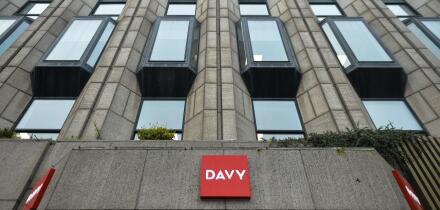
The joined-up, holistic approach that BNP Paribas took in the early days of the Covid crisis, when it integrated its DCM coverage activity into a wider banking and capital structure strategy, meant that it was perfectly positioned for the late spring and early summer market re-opening, says Giulio Baratta, head of investment grade finance.
“Because we had the structure in place and the long-standing relationships with clients, we were ready to not only spot the market reopening for companies across different sectors, but to respond to the challenges corporates faced to ensure they could both recover from the crisis and endure future shocks,” he says. “Companies fought for survival in the first part of last year and then started work on future proofing businesses, whether that was through lower leverage, pushing out maturities, revising ALM policies to refinance in a safer way or fine-tuning of capital structures.”
Key to the holistic balance sheet effort was providing what Mark Lynagh, co-head of EMEA debt markets, calls “neutral” capital structure advice. “In many cases, we were able to suggest potential outcomes for clients that involved hybrid capital, convertible bonds or straight equity and be agnostic over one or the other given how we were set up,” he says. “It’s fair to say that every DCM banker worked intimately with their respective ECM counterpart over the last 18 months”. A clear example of this pivoting across capital markets practices was displayed in BNP Paribas’ global coordination of Rolls-Royce’s £2.0bn rights issue and £2.0bn bonds and loan facilities.
The stand-out issuance in the immediate post-Covid period was the $12bn multi-tranche, multi-currency hybrid from BP — winner of this year’s best corporate borrower award. BNP Paribas was joint structuring advisor on that deal. “It was a phenomenal deal and emblematic of balance sheet de-gearing in the energy sector,” says Lynagh.
Perhaps nothing showed investor enthusiasm for corporate hybrids more generally than a €2bn dual-tranche deal from Vodafone — issued at the height of continental Europe’s usual summer vacation season in August 2020.
Another example of the joined-up approach comes from Spanish mobile infrastructure firm Cellnex, a frequent capital markets visitor that has borrowed as a crossover and investment grade credit as well as raising equity. “We’ve covered the issuer on the DCM and ECM side as a joined-up team,” says Lynagh.
The integrated capital markets business also put BNP Paribas in the ideal position to chaperone borrowers who had lost one or all of their investment grade ratings as a result of the crisis. The financing package that Rolls-Royce brought in late 2020, was a prime example. The aerospace engine firm raised £5bn, including a £2bn rights issue and a £2bn bond issue — its first as a sub-investment grade borrower, but attracting a diverse book of demand — as well as term and export credit-backed loans.
“We are well set up for this kind of transaction with leveraged and investment grade finance both sitting in the debt markets business,” says Baratta. “The entry point for the client is the same and we’ll advise on what documentation and market approach we think is the right outcome and feasible for that client.”
Standing out in the euro market over the last year has also required a closer relationship with investors than ever before, as despite the overall bullish sentiment, corporates have often had complicated recovery stories to tell, and markets haven’t always been benign.
“We were able to reach investors in deal and non-deal related conversations and that facilitated a lot of the transactions we were involved in,” says Lynagh. “The amount of investor education has really been dialled up over the last 12 months, so while investors are supportive and constructive, they absolutely still want to understand the underlying credits longer term”.






